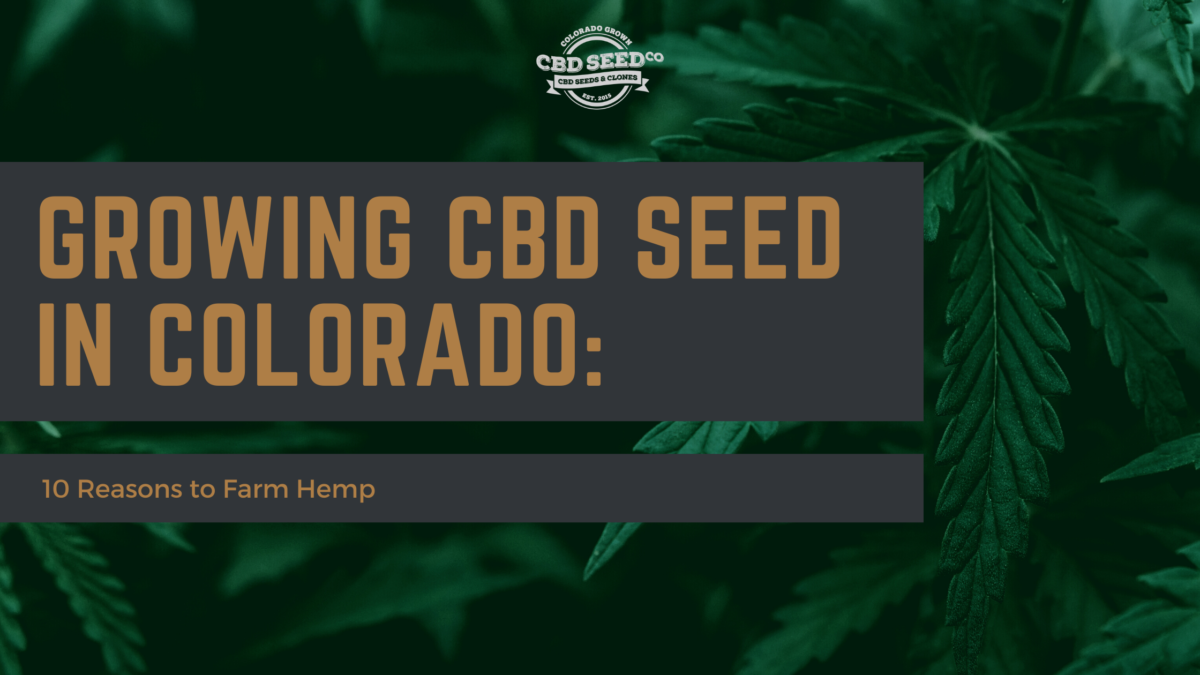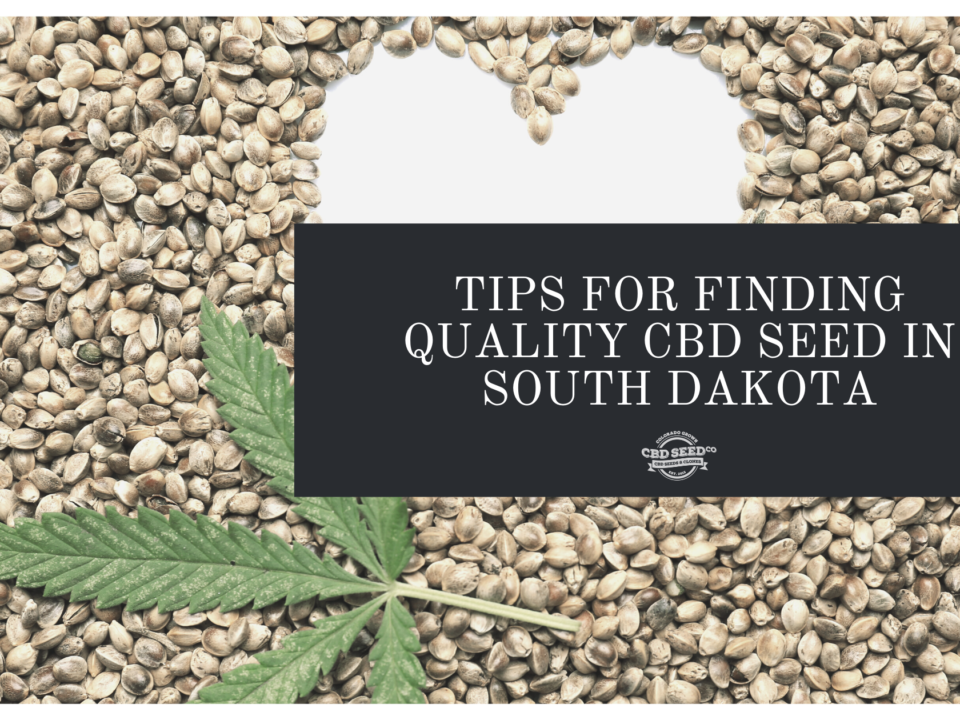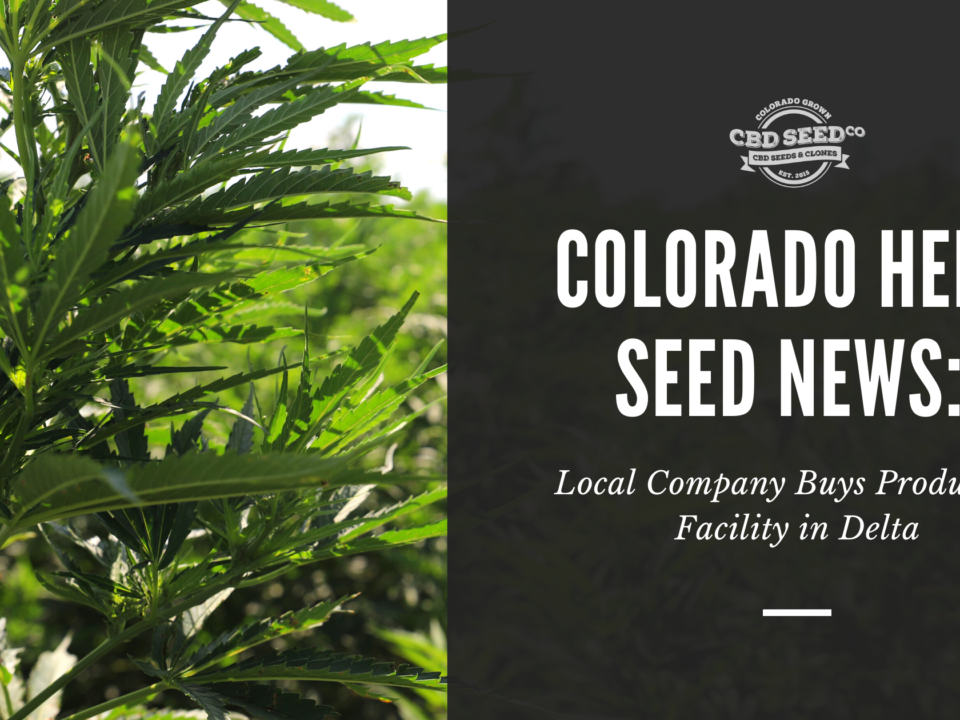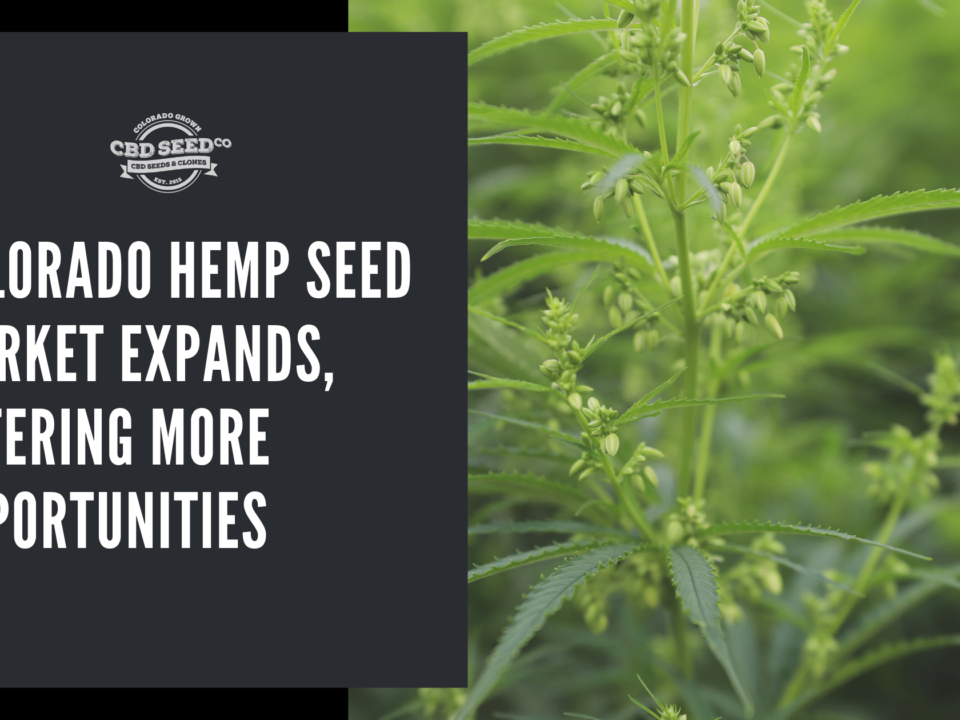Growing CBD Seed In Colorado: 10 Reasons to Farm Hemp

Common Mold Concerns for Georgia Hemp Farms
January 20, 2021
Growing CBD Seed In Texas: How to Start a Hemp Farm
February 8, 2021Colorado has remained at the forefront of the hemp industry and is still one of the largest producers in the country. This relatively new cash crop is continuing to boom across the nation with 465,762 acres planted in 2020. While hemp can be quite a lucrative industry with its own respective challenges, there are many reasons why farmers are excited to join this new industry. Hemp provides numerous benefits for any farm, providing a highly versatile crop that’s also sustainable. Here are ten reasons why Colorado farmers are planting CBD seed and cultivating industrial hemp.
The Benefits of Planting CBD Seed and Growing Hemp In Colorado
- Hemp cultivation environment: Cash crops are typically limited by their planting region, making certain crops impossible to thrive in Colorado. However, hemp can grow virtually anywhere in the nation and does incredibly well in our dry, invigorating climate. The robust crop doesn’t fare well in extremely dry deserts or very high, mountainous areas where agriculture already doesn’t take place. If you already have an established farm, chances are that hemp will thrive on your property. Hemp cultivation thrives with well-drained soil so this may be the only adjustment you need to make. However, the soil conditions here are usually well-suited for this need.
- The most versatile crop available: While hemp cultivation has been mainly focused on CBD production, the highly versatile crop has endless applications. With 25,000 known applications, industrial hemp can be farmed for textiles, paper, food, building materials, oils, beauty products, and more. All parts of this unique crop can be utilized for countless different finished products. This allows farmers to diversify in a way not achievable by other cash crops. The ability to harvest different parts of the plant provides more opportunities to make money.
- Enjoy an excellent ROI: There are many hemp-derived products that are currently booming. The most lucrative sector of the industry is planting CBD seed in order to produce CBD, CBG, and other cannabinoid-focused products. Hemp farmers cultivating with these specific goals in mind have reported earning up to $40,000 per acre. Farmers usually make around $1000 per acre of corn– this substantial increase makes hemp farming a great option. However, it’s important to be mindful that these profit margins are only obtainable by highly experienced hemp farmers. Novice farmers and new hemp farmers will experience a lot of challenges and setbacks, but the money is there.
- A highly resilient choice for farmers: Risk comes with any business, especially in the agricultural industry. Crops can fall victim to pests, severe weather concerns, or disease. While hemp can be susceptible to certain threats, it is renowned for its resiliency. Hemp is naturally resilient to common diseases and pests that other cash crops are more vulnerable to. The fast-paced nature of hemp growing cycles also allows it to outpace weeds. Even though hemp is generally more durable and robust than other crops, it will require daily attention and proper cultivation. Farmers will still need to watch out for common hemp molds or potential pest issues. Luckily, the dry climate here makes hemp less susceptible to molds than other higher humidity locations.
- Autoflower varieties are available: Colorado has a slightly longer growing season than other locations. Colder climates generally have shorter growing seasons while warmer climates can even have the opportunity to plant more than one harvest. Autoflower hemp varieties provide better logistical flexibility for farmers since they offer fast grow times suitable for your climate-specific needs. Autoflower hemp strains usually grow in 75 days compared to full-term hemp which generally takes about 100 to 120 days to mature. These varieties provide farmers with shorter windows the ability to cultivate this cash crop.
- Regenerative properties for soil conditions: Hemp offers the incredible regenerative property of detoxifying soil. The majority of other cash crops require significant nutrients from the soil, leading to farmers using heavy chemical fertilizers. Some of these farmers are adapting regenerative farming practices of rotating fields to allow their soil to recover. Planting CBD seed can speed up this process by revitalizing your soil conditions. Hemp has considerably deep roots that create a durable root system within the soil, preventing erosion. Hemp roots also loosen up your soil, creating ideal conditions for your next crop addition. Planting hemp naturally aerates your soil which creates carbon dioxide deposits within your soil. Recent studies have shown that the more toxic ingredients hemp is able to pull from your soil, the higher CBD content it can produce. The biomass created after hemp harvest can also be decomposed and provide nutrient-rich properties for fertilizing your soil.
- The sustainable, water-efficient crop: Droughts and water efficiency have also been an issue here in Colorado. That’s why hemp cultivation is well-suited for our state. While hemp is not a low-water crop, it requires significantly less than other cash crops like almonds, avocado, and cotton. Cultivating hemp instead of these high-water crops can help you save on your watering costs.
- Less pesticide and herbicide needs equal better environmental benefits: High pesticide use is required with a lot of crops. This causes toxic water runoff, leading to significant issues for the environment. Even though EPA has approved pesticides and herbicides for hemp cultivation along with each state having its own rules and regulations, farmers producing high CBD hemp often prefer organic farming practices. Due to hemp’s natural pest-resistance, organic farming practices are more achievable than other crops. There are biological and integrated pest management practices that farmers can opt for in order to maintain high-quality purity.
- A wonderful option for crop diversification: Crop diversification is recommended for any farmer. This helps balance out industry risks– hemp is the perfect addition for achieving this task. Since hemp can promote regenerative agriculture, it’s a wonderful option to add to any farm. Hemp detoxifies the soil, has a shorter growing season, doesn’t need a lot of water, has endless applications, and can provide an excellent ROI. All of these benefits should be considered when looking for additional crops for diversification.
- The environmentally-friendly choice: Climate change impacts everyone, especially the future of agriculture. In addition to requiring less water and fewer chemicals than the majority of other cash crops, hemp offers some other incredible benefits. Hemp helps prevent soil erosion while feeding on carbon dioxide and pouring it into your soil. Hemp is also renowned for its sustainability alternative to countless other materials. For example, only one acre of hemp can create the same amount of paper as four to ten acres of trees. Hemp grows to maturity in four months while trees need at least twenty years or more. From sustainable building materials to biodiesel, hemp alternatives have been quickly on the rise.
Work With Colorado’s Number One CBD Seed Company
CBD Seed Co. is honored to be the number one CBD seed company serving the state of Colorado. All of our genetics have been bred on our Colorado farms and have proven high CBD producing capabilities. Work with our industry-leading team to cultivate this incredible cash crop with amazing benefits. For more information regarding the benefits of hemp cultivation, please contact us!





